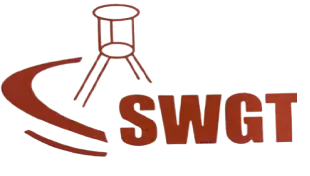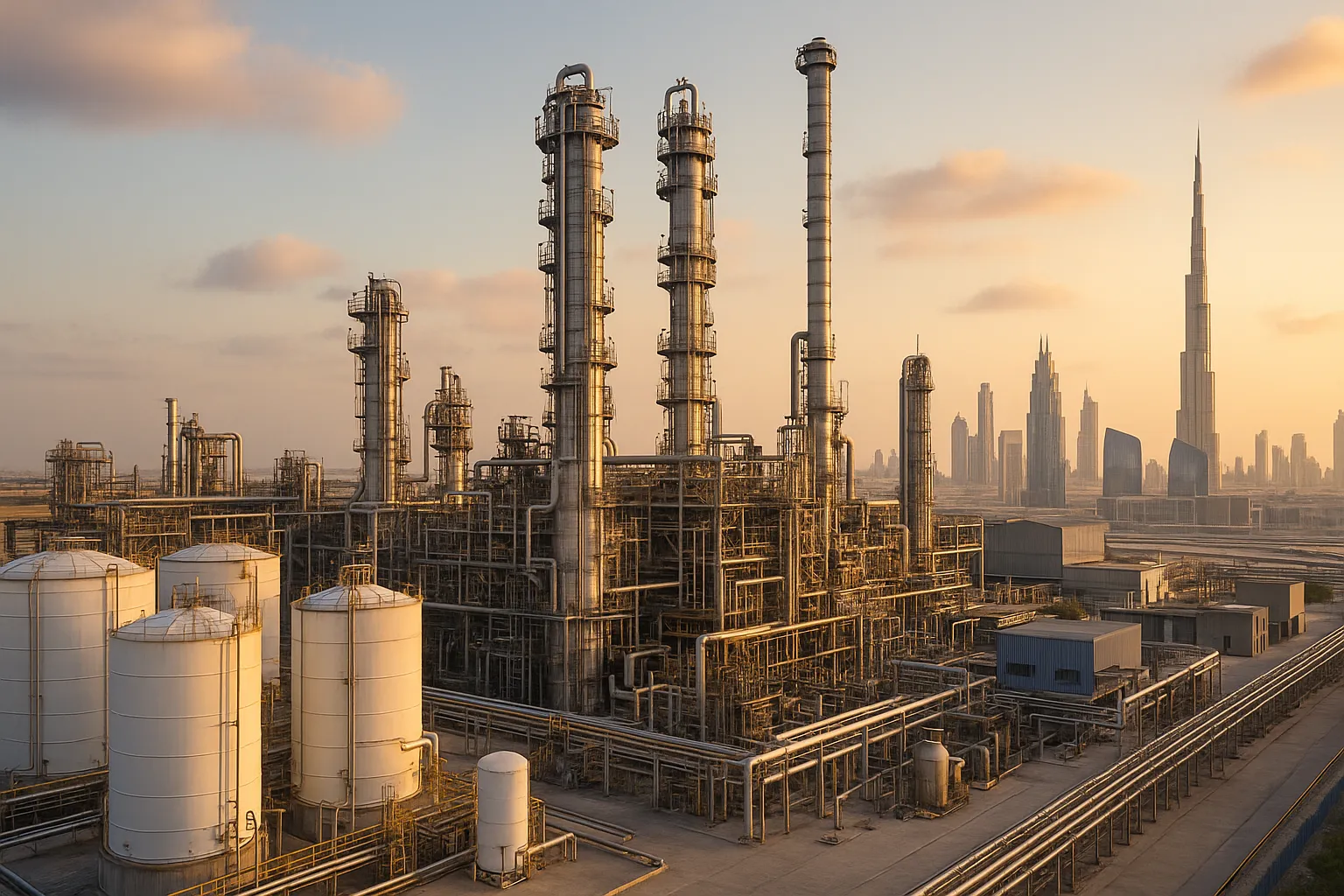Dubai and the broader UAE region have established themselves as global trade hubs — not just for oil but increasingly for chemicals, industrial raw materials, and specialty compounds. Thanks to their strategic location, world-class ports like Jebel Ali, and business-friendly regulations, the UAE has become a magnet for chemical trade.
Today, chemical importers in Dubai serve vital industries like construction, oil & gas, food processing, agriculture, healthcare, and manufacturing.
In this article, we will explore:
-
The role of Dubai as a chemical trade gateway.
-
Key chemical importers operating in the UAE market.
-
A data-driven view of demand for particular chemical products.
-
Real examples of chemicals with high demand.
-
Opportunities and trends for chemical exporters and importers in 2025 and beyond.
Dubai as a Chemical Trade Hub
Dubai’s prominence in the chemical sector is built on three pillars:
-
Strategic Location: Between Europe, Asia, and Africa.
-
World-Class Logistics: Ports like Jebel Ali and Khalifa Port are among the largest and most efficient globally.
-
Business Ecosystem: Free zones such as Dubai Industrial City and Jebel Ali Free Zone offer tax benefits and simplified customs.
The Dubai Industrial Strategy 2030 further prioritizes chemicals among the top sectors for future development, meaning consistent government support.
Top Chemical Importers in Dubai and UAE
Below is a table featuring some of the leading chemical importers active in the Dubai and UAE market:
| Company | Specialization | Key Markets Served | Location |
|---|---|---|---|
| StarChem Trading | Industrial Chemicals, Specialty Chemicals | Oil & Gas, Water Treatment | Dubai |
| REDA Chemicals | Specialty and Performance Chemicals | Construction, Coatings, Pharma | Dubai, JAFZA |
| Trice Chemicals | Detergents, Disinfectants, Industrial | Cleaning, Hospitality, Agriculture | Sharjah |
| Desert King Trading | Oilfield Chemicals, Construction Chemicals | Energy, Construction | Abu Dhabi |
| AL Gurg Fosroc | Construction Chemicals | Infrastructure, Real Estate | Dubai |
| Chemi Care | Laboratory and Industrial Chemicals | Research, Education, Healthcare | Dubai |
Each of these companies imports large volumes of chemicals, serving both local consumption and re-export across the GCC, Africa, and Asia.
Demand Trends: Which Chemicals Are Growing Fast?
Several chemical products have seen rising demand across the UAE, especially in 2024 and projected through 2025.
Here’s a summary of high-demand chemicals:
| Chemical Product | Primary Application | Reason for Demand |
|---|---|---|
| Polyvinyl Chloride (PVC) | Construction, Pipes, Cables | Construction boom in Dubai and Abu Dhabi |
| Ethanol | Sanitizers, Cleaning Products | High hygiene standards post-pandemic |
| Caustic Soda (Sodium Hydroxide) | Water Treatment, Textiles | Industrial growth and sustainability focus |
| Hydrogen Peroxide | Disinfectants, Pulp & Paper | Increased food safety and cleaning standards |
| Bitumen | Road Construction | Infrastructure mega projects (Expo Legacy) |
| Urea | Fertilizers | Growing UAE agriculture and landscaping |
| Monoethylene Glycol (MEG) | Textile Fibers, PET Resins | Textile manufacturing and packaging surge |
Case Study: Polyvinyl Chloride (PVC) in Dubai
PVC is one of the most demanded plastics in the UAE today.
Here’s why:
-
Construction Growth: With multi-billion-dollar real estate projects like Dubai South, Dubai Creek Harbour, and various Expo City expansions, the demand for PVC pipes, wiring insulation, and window frames is surging.
-
Local Shortage: Most PVC is imported from India, China, Saudi Arabia, and the US because local UAE production is limited.
Example:
A major Dubai-based real estate developer ordered over 15,000 metric tons of imported PVC materials in 2024 alone for their commercial and residential projects.
Estimated Growth Rate:
According to Mordor Intelligence, the UAE PVC market is expected to grow at 5.4% CAGR from 2024–2028.
Why Dubai’s Chemical Market Is Attractive for Importers
Several factors continue to make the UAE chemical market highly attractive:
-
Diversified Economy: Beyond oil, UAE focuses on healthcare, clean energy, and advanced manufacturing.
-
Re-export Hub: Dubai is a gateway to the GCC, Africa, and South Asia.
-
Stable Business Environment: Favorable trade laws, free zones, and transparent regulations.
-
Sustainability Focus: Demand for green chemicals, eco-friendly solvents, and sustainable materials is increasing.
Key Regulations and Certifications Required
Importers must comply with several UAE regulations, including:
-
UAE Standardization and Metrology Authority (ESMA) certifications.
-
GHS (Globally Harmonized System) for chemical labeling.
-
Special permits for hazardous chemicals under Dubai Municipality.
Importers and suppliers often need to register their chemicals in the Dubai Municipality Product Registration System before distribution.
How to Start Supplying Chemicals to Dubai: Practical Tips
If you are a chemical manufacturer or a new supplier planning to tap into the Dubai market, here’s a quick checklist:
-
Market Research: Identify high-demand products.
-
Find Local Partners: Work with importers like REDA or Trice Chemicals.
-
Certifications: Prepare all necessary safety and environmental compliance documents.
-
Logistics Planning: Choose efficient ports like Jebel Ali.
-
Cultural Sensitivity: Understand business etiquettes in the UAE.
-
Participation in Trade Shows: Events like ArabPlast, Gulf Industry Fair, and Middle East Coatings Show are perfect to network.
Future Outlook: Opportunities Beyond 2025
The chemical sector in Dubai and the UAE is evolving with a future-forward focus. Key trends expected to shape the industry include:
-
Green Chemistry: Demand for biodegradable and eco-friendly chemicals.
-
Healthcare Sector Growth: Expanding pharmaceutical and medical chemical imports.
-
Oilfield Innovations: Need for advanced oilfield chemicals as UAE invests in enhanced oil recovery (EOR) technologies.
-
Advanced Manufacturing: Growth in polymers, coatings, and electronics materials.
Insight:
The UAE’s “Operation 300bn” industrial strategy plans to double industrial sector contribution to GDP by 2031, with chemicals being a major part of that.
Conclusion
Dubai’s and the UAE’s chemical market is booming — offering incredible opportunities for importers, traders, and manufacturers worldwide. With the right certifications, products, and partners, businesses can tap into one of the most vibrant chemical trading hubs globally.
Whether you are supplying construction chemicals, specialty solvents, or eco-friendly raw materials, Dubai is open for business in 2025 and beyond.
Pro Tip: Stay ahead by aligning your product offerings with sustainability, safety, and innovation trends — the UAE market rewards forward-thinking suppliers.
FAQs
Q1. Which chemicals are most imported in Dubai?
PVC, Ethanol, Caustic Soda, Hydrogen Peroxide, Bitumen, and Urea are among the top imports.
Q2. Do chemical importers need special permits in the UAE?
Yes, especially for hazardous or industrial chemicals. Registration with Dubai Municipality is mandatory.
Q3. What are the best free zones for chemical trading in UAE?
Jebel Ali Free Zone (JAFZA), Dubai Industrial City, and Khalifa Industrial Zone (KIZAD) are highly recommended.

